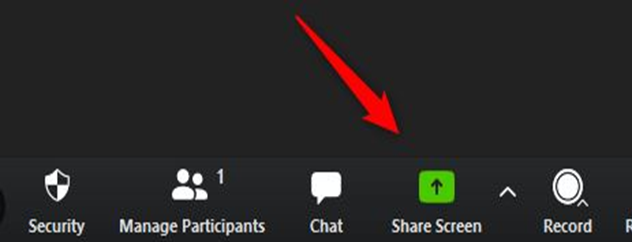Employees are quitting their 9 - 5 jobs for remote jobs that pay more and also allow them to spend more time on things they like.
The COVID-19 pandemic which took the world by surprise has made companies begin to think that the future of work is remote. So both companies and job seekers are beginning to adapt to it.
According to a report, 16% of companies around the globe are fully remote, while 62% of workers aged 22 to 65 claim they work remotely at least occasionally.
However, working remotely isn't easy. There are skills you need to develop as a remote job seeker to fit in properly. Even companies that will hire you will test you to see if you possess these skills.
In this article, you will discover 6 of them and why you need them to make the best out of your remote job.
Who Is A Remote Job Seeker?
A remote job seeker is someone that wants a job that allows them to work from anywhere around the world. Such persons are interested in something other than jobs that require them to be at the physical office or get a work visa.
They are after jobs they can do from the comfort of their homes with smart devices and internet connection. The aim is to work at their own pace, earn more, and be free to attend to other things they care about.
Why Do Remote Job Seekers Need Skills?
Companies that hire remote workers want to be sure you are equal to the task. You can confirm this on job blogs, and job boards where companies list the skills they want from remote job seekers.
Keep in mind that nobody monitors you, unlike in a physical office. So you need skills that will prepare you to deliver on the job to meet the yearnings of your clients and employers.
Let's look at the skills.
1. Comfort With Using Digital Tools
High-paying remote jobs will require you to know how to use digital tools. By this, I don't mean your smartphone or computer, but rather software, tools, and programs that ensure you deliver a quality job. Many companies have their virtual meetings on Zoom or Google Meet.
You should be conversant with these tools and their features. For example, you may be asked to share your screen in a Zoom meeting to evaluate and appraise the job you have done so far.

It could also be that you're to co-host a webinar, and make presentations using a whiteboard for illustration.
Interestingly, you can learn how to use all these tools on your own for free. Some of these tools have free trials and free plans. Sign up and play around with them to understand their features and how to use them in meetings and webinars.
2. Communication Skills
Video and phone conferencing, and exchanging emails, are key ways of connecting with your colleagues remotely to deliver on a project. And they require that you have communication skills. During video and phone calls, you should know how to make contributions, ask questions, and take feedback.
Verbal and non-verbal are two types of communication skills that are key in remote jobs. Verbal involves the tone of your voice, while non-verbal involves facial expressions and eye contact. All of these come to play during video conferencing.
For emails and text messages, learn how to respond, showing your understanding of the content. Consider the time when you want to email your team for an urgent response. Keep in mind, they are likely to be in different locations with different time zones.
3. Ability To Work Independently
Remote work isn't like an on-site job, where you sit next to your colleagues and work dependently. It requires you to develop the ability to work independently without relying on the support of another person. Of course, nobody is there to hold you by the hand, and you're expected to meet deadlines.
To develop this skill, take remote internship programs when you see one. Though some companies that are open to this pay little or nothing, it's a way of building yourself to work self-sufficiently on a given task.
The benefits are numerous. You increase your focus on a given task, which helps you meet up with deadlines. You can work at your own pace, knowing that you can handle any task anytime without waiting for someone to help you.
4. Self-motivation
Motivation is key to boosting your productivity. It's a fact that there will be times when you will feel down and find it hard to concentrate.

But what do you do when the manager you work under won't be there physically to motivate you?
You've to motivate yourself.
While it's hard, there are ways you can do it. Celebrating your wins is one of them. Say your manager commended you via email for the latest job you completed. It's enough to boost your morale and get you motivated. Another is not to overthink tasks you think are tedious. Breaking them into bite-sized goals is the way to motivate yourself to get them done.
5. Cybersecurity Awareness
When you are working remotely, you make use of your smart devices and internet connection. Scammers who want to gain access to sensitive details are always ready to attack you at any opportunity.

That's why you have to be cybersecurity conscious. This is a skill you must possess to keep safe, otherwise, you can cost damage to the company you work for.
A good approach is to lock up your home office to prevent unauthorized access. Another is to avoid public internet connection. If you must, use a VPN to protect your activities. Create strong passwords and use 2-factor authentication if possible. You may consider taking free cybersecurity courses on platforms like Udemy and Alison.
6. Time Management
One advantage of remote work is that you have control over your time. And one tends not to plan with time, which leads to not meeting up with deadlines. Learning how to manage your time is an important skill. Have your remote work schedule and keep to it.
Know when to spend time with family and when to lock up yourself in a corner to complete your task. Consistency with completing jobs before the deadline is a work ethic that can make your employer increase your pay or offer you more perks.
Conclusion
Landing that high-paying remote job will be a mirage if you don't possess the skills that will make it happen. Keep in mind that you will do trial tasks to confirm you have these skills before companies hire you. We've shown you 6 of them in this guide. It's up to you to start learning them now, so you won't be taken unawares.


 Table of Content
Table of Content










